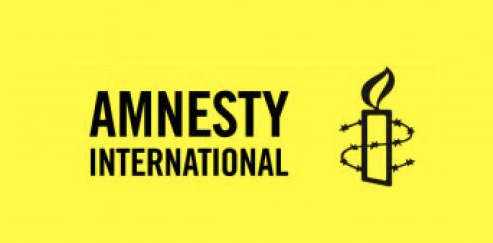With just a few hours left for states to reach agreements at the 2019 UN climate negotiations at the 25th Conference of Parties (COP25) of the UN Framework Convention on Climate Change, Amnesty International calls on negotiators to finally listen to people’s demands and put human rights considerations at the centre of their decisions. If they fail to do so, they will set the stage for decades of human rights abuses for which they will be responsible.
COMMIT TO urgent and human rights compliant climate action
It is vital that the COP25 final decision acknowledges the need for urgent climate action and for all countries to prepare or update their Nationally Determined Contributions (NDCs) to reflect the highest possible ambition to keep the global average temperature rise below 1.5°C. The decision must also require NDCs to be developed and implemented in a participatory manner, engaging local communities, obtaining the free, prior and informed consent of Indigenous peoples, and taking into account gender considerations and human rights obligations. If states do not present new climate plans next year or if these are not ambitious enough, human rights violations will ensue from the devastating climate impacts of a world at 3 or more degrees higher than pre-industrial times.
DON’T accept RULES that will allow human rights abuses
In negotiations on carbon markets, commitments to human rights safeguards must be included. Such guarantees are necessary to ensure that negative human rights impacts are assessed prior to adopting such projects and that people directly impacted by carbon market projects have a say in shaping such measures. Not including these safeguards and an independent grievance mechanism will condemn local communities and Indigenous peoples to further human rights violations, as previous “clean” projects have done. What is at stake is the life, the health, and often the cultural survival of entire peoples who have been subject to discrimination and marginalization for hundreds of years. Adopting rules that do not result in climate ambition and can harm people would be a worse failure than not reaching any agreement at all.
Wealthiest countries must stop freeloading on developing countries
In negotiations on “loss and damage”, wealthiest countries must accept their human rights obligations to support and provide remedy, including financial compensation, to people whose rights have been negatively affected by climate impacts. Wealthy countries are responsible for the bulk of greenhouse gas emissions and should not expect developing countries to bear the full costs. Wealthy countries that refuse to pay their fair share are in practice turning their back to the almost four million people who have lost everything but their lives in the two cyclones in Mozambique earlier this year, or to residents of Pacific islands in urgent need of relocation due to sea-level rise.
Amnesty International reminds negotiators that the above demands are not minor issues promoted by a few organizations. They represent the calls for climate action and climate justice that are uniting people from around the world, bringing together Indigenous peoples, children and youth, women, people with disabilities, trade unions, LGBTI people, minority communities, people living in poverty and all those who suffers the most from the impacts of the climate crisis. Should these clear voices go unheeded, the resultant disconnect of climate negotiations from the needs and rights of people will lead to ever more climate related human rights catastrophes.













